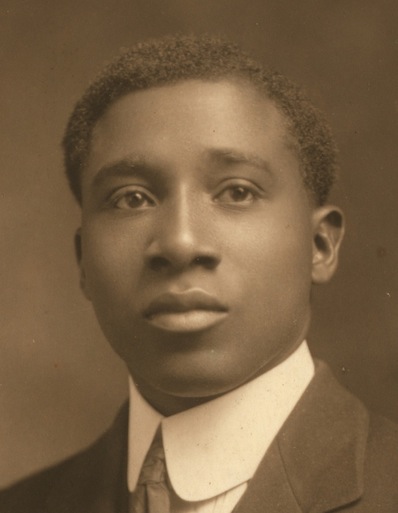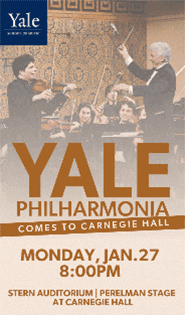Heavy-handed presentation undermines Cincinnati Symphony revival of Dett’s “Moses”

R. Nathaniel Dett’s “The Ordering of Moses” was performed by James Conlon and the Cincinnati Symphony Orchestra Friday night at Carnegie Hall.
James Conlon led the Cincinnati Symphony Orchestra, May Festival Chorus, and an appreciative audience in a rousing encore of Handel’s “Hallelujah” chorus from The Messiah to close its “Spring for Music” performance Friday night at Carnegie Hall. Yet it was another refrain of “Hallelujah” that loomed larger over the evening.
In 1937 the Cincinnati Symphony premiered R. Nathaniel Dett’s oratorio, The Ordering of Moses at a May Festival concert, which was broadcast live on NBC radio. About 45 minutes into the African-American composer’s hour-long work, the choristers intone “Hallelujah” in response to the drowning of the Pharaoh’s armies. Then NBC cut the broadcast for reasons that remain unknown today.
The Ordering of Moses, a landmark work by an African-American composer, was on the program again Friday night, and the performance played out much as it had on the airwaves decades ago. Conlon stopped the orchestra at the very point when the broadcast ended, and the actual taped interruption from 1937 played over the house speakers: “We are sorry indeed, ladies and gentleman, but due to previous commitments, we are unable to remain for the closing moments of this excellent performance.”
Unlike 74 years earlier, Friday’s listeners, both in the house and those tuning in on WQXR, heard the oratorio through to its exultant finish. However, it’s curious that in Conlon’s attempt to remedy an injustice—the program notes maintain that the broadcast was halted due to complaints regarding the composer’s race rather than a scheduling snafu—the conductor engaged in such a jarring and gimmicky interruption himself.
It’s unfortunate that Dett’s work could not be appreciated on its own merits and had to be couched in a such a heavy-handed bit of politically correct rehabilitation—which also included the cringe-inducing introduction from the original broadcast, calling The Ordering of Moses, “the most important musical contribution by a member of the Negro race.”
The tacky and ill-considered presentation apart, Dett’s extraordinary and engaging work tells the familiar story from Exodus through a kaleidoscopic range influences: spirituals such as “Go Down Moses,” reworked into a fugue; the lush romanticism of Dvorak; a seguidilla-like dance complete with castanets; and jazzy inflections throughout. The call and response between the chorus and the four soloists is as indebted to Handel as it is to black churches.
The Cincinnati Symphony and soloists gave a fine account of this work. Rodrick Dixon brought a clarion tenor to Moses, the soprano Latonia Moore rang over above the formidable May Festival Chorus as Miriam, and both Donnie Ray Albert and Ronnita Nicole Miller as the voice of Israel sang well. Principal cellist Ilya Finkelshteyn played sensitively in several solo passages.
The program was an especially fine showcase for the strengths of the May Festival Chorus and its 150 members who brought intense precision to both The Ordering of Moses and the opening work, John Adams’s Harmonium.
Written in 1980, Adams’s shimmering piece unfolds from a single tone to create variety of undulating textures, set to a John Donne poem and a pair by Emily Dickinson. Conlon wove an ethereal quality from the chorus and orchestra through the three movements exploring, in order, the power of love, a dirge-like meditation on death, and ecstatic lust.
One of the most rewarding elements of “Spring for Music,” now in its final year, is engaging with strong musical traditions from around the continent, such as Cincinnati’s pride in its choral tradition. Exhibited throughout the program, this proved particularly impressive in the encore as Conlon turned toward the house to direct Handel’s “Hallelujah” chorus, a tradition which annually ends the May Festival. The soloists, chorus, and audience all followed in perfect four-part harmony.
Amanda Angel is a New York-based writer and editor. Her work has appeared in Time Out New York, WQXR, Glamour, O Magazine, Nylon, NYTimes.com, and the Chicago Tribune.


Posted May 11, 2014 at 10:15 am by Kathye Nippert
Even though the writer gave negative critique about the “reinactment” of the musical piece stopping…. Those of us in the audience appreciated the historical perspective! Don’t be so small minded and be respectful of the sensitivity from the city where the performance was stopped. It was an excellent performance and engaging from the audience around me!
Posted May 12, 2014 at 11:56 am by Cynthia Solomon
One must question the reasoning behind the 1937 breaking off of the final magnificent moments of Dett’s unique interpretation of this important biblical story. What my husband and I found striking was what the 1937 audience missed. The culmination has great substance, and Maestro Conlon allowed us the opportunity to experience what the 1937 audience could not! Thank you!
Posted May 12, 2014 at 4:10 pm by Christopher Kingsley
Having listened to the entire week of “Spring For Music” via the internet, I was more than appreciate of the way Cincinnati Symphony’s program was put together. To call the insert of the original 1930’s NBC announcer’s introduction “cringe worthy” is, without a doubt, a complete insult to the very storied tradition of the beginnings of classical radio broadcast, Toscanini, anyone?! Not only did I find the addition of the vintage radio piece fantastic, in context to the piece at hand, I also found it in perfect keeping with the fact that the work had not been broadcast over the radio in nearly 80 years. Ms. Angel obviously did not hear the applause after the piece was concluded, which says to my mind that the presentation was no where near “tacky” or “ill-considered.”
Posted May 12, 2014 at 6:34 pm by Jeremiah Silver
It was my understanding that the Spring Festival organizers at Carnegie Hall chose the music and the conductor for the concert. I think you need to do some verification that before stating it was Conlon’s decision to interrupt the piece.
I enjoyed the concert, particularly the challenging Adam’s work and felt the interruption was communicated ahead of time which made it very effective as to the understanding of the history of the piece which made it more powerful to me.
Posted May 13, 2014 at 3:52 am by Scott Morgan
I agree that it was unfortunate in that in two of the very limited performances of this piece, it was interrupted.
That said, the purpose of the oratorio was to tell a story and that through bigotry and neglect it recursively became the story.
I too cringed when I heard to word “negro,” but much like the crude form of the word used by Twain in “Huckleberry Finn,” it has its literary and prophetic uses.
Posted May 15, 2014 at 11:01 pm by Sam Jack
I’ve listened to WQXR’s broadcast recording and now I can say, I disagree with your conclusion about the radio bits. I think they added valuable historical perspective without detracting from my musical appreciation of the piece. It was a powerful and affecting performance all around.
Posted Jun 25, 2014 at 6:56 pm by Nate Wilson
“Negro!” People who are offended by this word need to stop being so hypocritical! I am Black, yes black, not African American and folks this is our “American” history. As much as you may want to just wipe it away and pretend it didn’t happen it did. For those who want to wipe slavery away and push “it” under the rug that cannot and should not be forgotten either. History speaks to who we are as a nation and why we are where we are as a nation today.